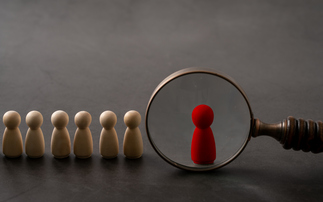Whilst there may not be an insurance policy against coronavirus, there are things that we can all do to protect ourselves from the stress that comes with it, writes mental health and neuroscience expert Matt Janes
Prolonged stress makes us ill, both physically and mentally, so it's important to know how to combat stress during this turbulent time. When I ask people to tell me about stress, invariably they reply with their financial or health concerns, or stories about their workload. But these things in themselves aren't stress, they are stressors. Stressors are the things which knock us out of physiological balance. Which begs the question, what is stress?
Stress is our reaction to anything that knocks us out of balance. It's the cascade of physiological and biological reactions that arise in us when we hear about the latest number of coronavirus victims, or the news that we're about to be placed on furlough. It's the raising of our heartrate, our blood pressure, the increase in levels of particular hormones and neurotransmitters.
Stress has an immediate effect on every organ, muscle and tissue in your body. This is all the handywork of your autonomic nervous system. It has two perfectly designed branches, which work in reciprocity to keep you healthy. One is built for action, the other for rest. When we're stressed, our ‘fight or flight' branch becomes activated. Which is fine for short periods, that's what it's designed for, to get us mobilised in times of activity or danger.
But under prolonged periods of stress, this comes at the expense of the other one, our ‘rest and digest' branch. As well as becoming necessarily active for us to sleep and digest food, this branch needs to get activated for our immune system to function. Therefore, spending long periods of time out of autonomic balance, due to stress, makes us more vulnerable to illness and disease.
So, what can we do to help reduce our stress during the coronavirus crisis? Here are my top tips…
- Develop a regular practice of checking in with how your body and mind feel. Is your heart racing? Is your breathing shallow? Are you fidgety? Are you more irritable than usual? Are you having racing thoughts? Are you constantly ruminating about your worries?
All of these are signs that your stress branch is activated and it's worth addressing it before your health is affected. Once you become more self-aware, there are several things you can do to regain physiological balance.
- Firstly, use your inbuilt superpower; your breath. You can calm your stress branch and activate your resting branch using a simple breathing technique. When we exhale, we activate the vagus nerve, the longest nerve in the autonomic nervous system. This slows our heart rate, blood pressure and signals your brain and body to calm down. It reduces inflammatory hormones and excitatory neurotransmitters.
Here's what to do - Through your nose, breathe in for 4 seconds, hold for a second at the top of your breath, then, again through your nose, breathe out for six seconds. And repeat. And repeat. You'll feel a sense of calm overcome you.
- Move slower. When you slow down your bodily movements, you slow down your mind. It works through a part of your brain called the hypothalamus, the control centre of your autonomic nervous system. By calming your mind like this, you can gain control over your thoughts, which in turn controls your beliefs. About your health, your financial situation, Coronavirus, and when all of this is going to end.
- Practice mindfulness. By spending more time in the present moment, you stop catastrophising about the future, something which is all too easy to do during a time like this. Our worries live in a brain circuit called the default mode network. This is also the area of all self-focused thought; 'Will I lose my job?', 'What if my elderly parents get ill?', 'How will my child's education be affected?'
Self-rumination plays a big part in mental illness, especially depression, so anything we can do to reduce it will benefit our mental health. Mindfulness deactivates the default mode network and as little as eight minutes per day can make a measurable difference. My online course is free during the coronavirus (thethrivecourse.com). - Reduce your intake of sugar, caffeine and carbohydrates. Insulin imbalance is a sure-fire way to become more anxious, so by cutting down on these foods, you'll help to achieve calm. Start the day the right way, by eating a breakfast rich in natural fats, not sugar, to fuel your body and brain through the day in a more sustainable way. That means dropping the toast and cereal. This article I wrote for COVER will give you more information about the foods to eat and the ones to avoid.
Whilst these are stressful times, these simple measures will help to balance your body, brain and mind, and in doing so, help to protect you from the stress of coronavirus. Stay safe everyone.
Matt Janes is a neuroscientist, author and nutritionist who specialises in mental health. Learn more about Matt's work at mattjanes.com







